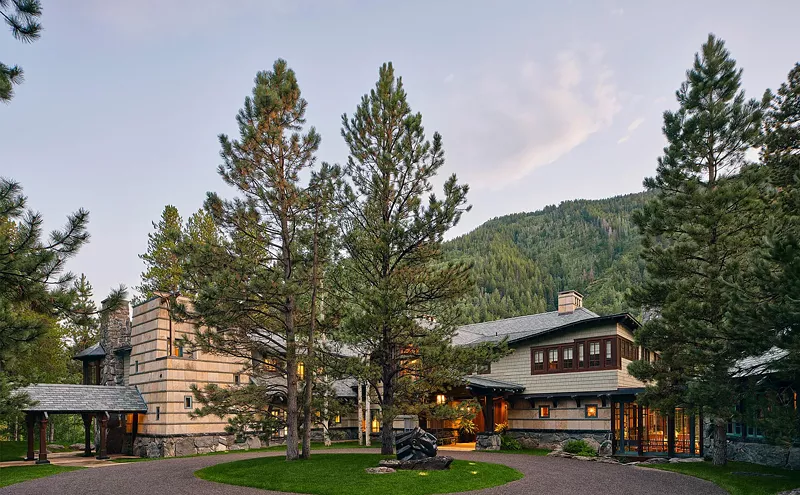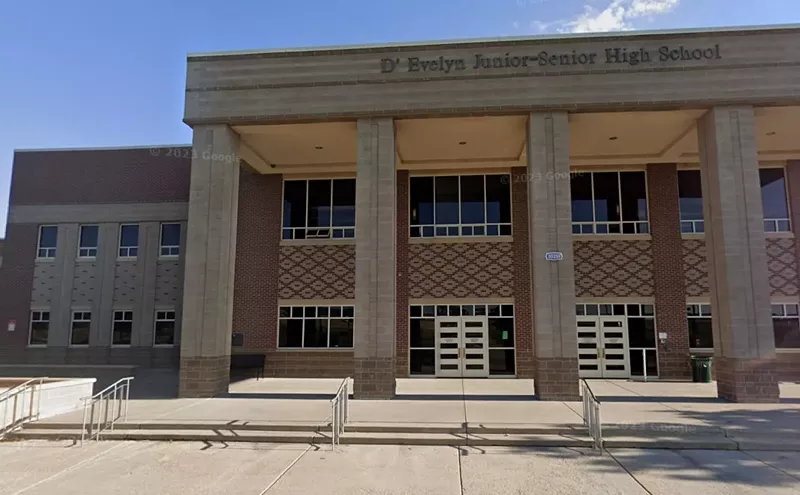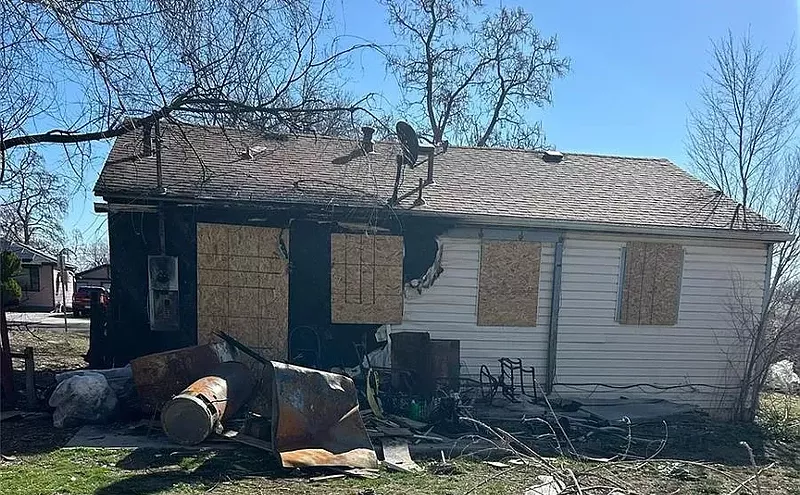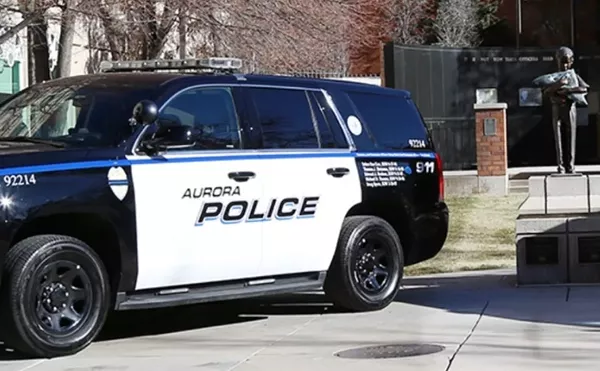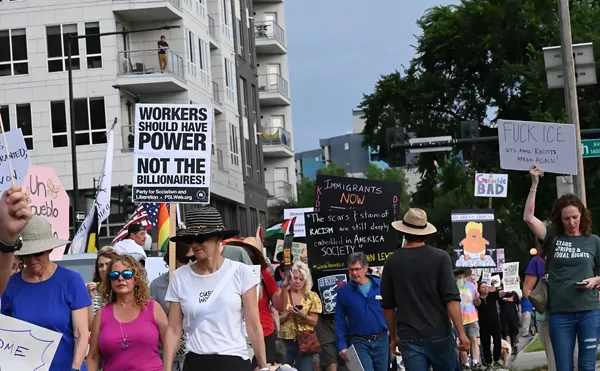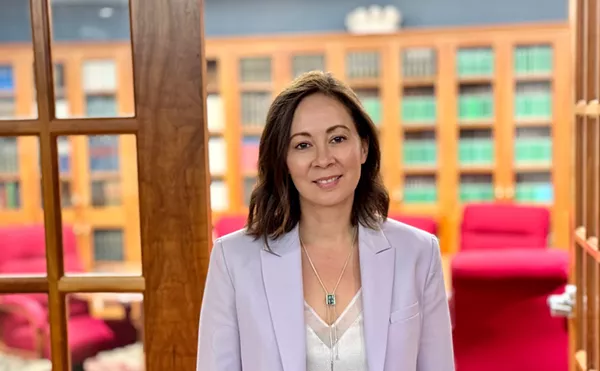What a difference a decade makes.
Back in early January 1997, a week after the lifeless body of six-year-old JonBenét Ramsey was found in the basement of her parents' home in Boulder, outraged residents called for a boycott of the supermarket tabloids that were all over the story, their reporters all over the town. One of the reviled publications, the Globe, even went so far as to publish pilfered coroner's photos of JonBenét -- photos that made her look like the vulnerable little girl she was rather than the tarted-up doll who paraded through endless clips cut from beauty-pageant videos.
Over the next few years, tabloid reporters continued to blanket the story -- and as they broke new ground on the case, the mainstream media increasingly followed their lead. With time, the distance between the tabloids and more respectable publications shrank, and then shrank still more. Today, the same stars and their personal plights -- baby bumps, fiancé dumps -- grace the covers of both the Enquirer and People. And sometimes Newsweek, too.
Media outlets not only look the same, they now act the same. In 1999, when Boulder County had yet to charge anyone in connection with the murder of JonBenét Ramsey -- unless you count the fellows who pleaded guilty to selling those coroner's photos to the Globe, or the Ramsey friend who brandished a baseball bat at two people he mistook for dreaded journalists -- a Jefferson County grand jury debated whether to indict Craig Lewis, an editor of the Globe, for criminal bribery. By offering a handwriting expert $30,000 for a copy of the Ramsey ransom note, Jeffco prosecutors argued, Lewis was inducing an employee to break confidentiality with an employer -- the Ramseys -- and thus had violated Colorado's criminal-bribery statute.
But the Globe's lawyers countered that the Colorado criminal-bribery statute was unconstitutional when applied to working journalists -- which the court stipulated that Lewis was, whether Boulder residents and more mainstream journalists agreed or not. And they brought in expert witnesses -- the court even stipulated that I qualified as one ("I Was a Witness for the Globe," November 11, 1999) -- to testify that if the statute could be used successfully against a tabloid employee who attempted to buy a ransom note, what would prevent it from being used against a reporter who bought a beer for a local DA?
Or today, against a television station so desperate for a "get," as the industry refers to hot-hot interviewees, that it offers up a plane trip, hotel accommodations and other enticements? The sorts of enticements that all these very respectable shows are now offering to John Mark Karr, the man Boulder finally charged with killing JonBenét Ramsey. Karr's first official interview was on Larry King Live. He didn't say much -- his attorneys had advised him not to discuss the Ramsey case and his arrest, Karr said -- but his appearance on CNN spoke volumes. Two months ago, news of the unlikely suspect in the murder of JonBenét Ramsey broke not in the tabloids, but on the TV networks, where Karr continued to be the top story for much of the next twelve days -- until Boulder District Attorney Mary Lacy dropped the charges on August 28.
Karr went from "total obscurity to international infamy overnight," King pointed out. And Karr would fade back into obscurity pretty quickly if people like Larry King and Good Morning America (which took Karr on an ill-advised trip last week to a California school where he'd once taught, attracting the attention of the cops) and Fox's Greta von Susteren (whose interview with Karr ran right after King's) were not so eager to put him on the air.
Of course, Karr would never have come out of obscurity at all if not for Michael Tracey, the University of Colorado journalism professor who corresponded with Karr off and on for four years, and whose leading e-mails and phone calls turned out to be Lacy's entire case, as Alan Prendergast laid out in squirm-inducing detail in last week's "Made for Each Other."
King tried to ask Karr about his relationship with Tracey, but the professor's pen pal declined to discuss it, explaining that "my attorneys have advised me not to be here at all. They've advised me not to discuss any investigations against me in the past."
So why was he even on camera? A man who may, or may not, be turning into a woman -- and may, or may not, have confessed to killing a little girl turned out as a woman.
Because the cameras were turned on.
"I think I have multiple opinions on who created the story," said Karr, who embodies a multitude all on his own, as his odd appearances make increasingly clear.
But the ultimate creator is the tabloid-abhorring professor Tracey.
Karr wasn't shy about offering kind words for his lawyers, including Boulder public defender Seth Temin, who was brought into the case once Karr was transferred here from California -- after his speedy move out of Thailand that Lacy later explained was motivated by concern over his unhealthy interest in a young girl there. "This whole idea that they were concerned he was going to harm a child in Thailand," Temin says. "First, that was not their role." And second, he points out, there was no evidence that he was going to harm a child -- or, in fact, has ever harmed any child.
"I always assumed they had more than they had," Temin says. But what the DA had, it turned out, was just Tracey.
"I think his behavior throughout has been pretty outrageous," Temin continues. "Clearly, this guy courted this longtime relationship...as fodder for whatever Mr. Tracey thinks he's doing."
What he thinks he's doing is creating another documentary -- the fourth in his series on JonBenét's murder. And Tuesday night, Tracey himself was back talking with Larry King about the case, and about the media's woeful coverage of the case. It would be a textbook example of what not to do for a CU journalism class -- if that journalism class didn't have so many examples of what not to do in its own department. When Tracey's role in the Karr debacle first broke, I suggested that he was the Ward Churchill of the journalism department.
But that might not have been fair to Churchill.
Ultimately, Jeffco offered Craig Lewis a novel way to settle the criminal-bribery case: He admitted to "ethical" wrongdoing, and the Globe donated $100,000 to the CU journalism school. "Chump change," Tracey told me at the time. "They could have gotten a million."
Asked this week where the money went, Tracey said he thought a substantial percentage had gone to CU's new Institute for Ethical and Civic Engagement, introduced as a cure for the university's considerable headaches the past few years. But the institute's director hasn't seen the money. "We'd be a hundred thousand dollars better off," Peter Simons says.
Just as the Boulder DA's office would be about $50,000 better off if they'd never heard of John Mark Karr. Never heard from Michael Tracey.
"It bothers me when people try to create a story," says Temin. "When you create news." When you create a suspect.
"Everyone wants it to go away, or pretends they want it to go away, but it's not going to go," Tracey said of the Ramsey case back in 2001. "The number of bodies -- some of them still breathing -- that have been affected."
The number of media outlets that come calling.



